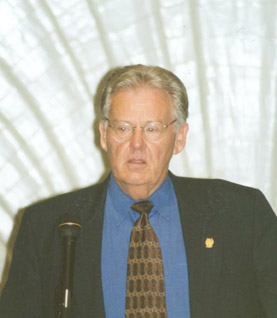|

|
 |
National HBPA Unveils Proposed National
Drug Testing And Therapeutic Medication Policy
On Thursday, October 18, the National HBPA held a press conference at Keeneland Racecourse in Lexington, Kentucky, to unveil a proposed national drug testing and therapeutic medication policy. The proposed policy is intended to stimulate discussions throughout the industry in the hopes of eventually leading to a widely accepted and adopted national drug testing and therapeutic medication policy. Below is the text from the press release regarding the proposed policy sent out from the National HBPA to the media: Heeding the call from its members and key industry leaders, the National Horsemen's Benevolent and Protective Association (NHBPA) today unveiled a proposed national policy on drug testing and therapeutic medication for Association of Racing Commissioners International (ACRI) class 1, 2 and 3 foreign substances. The proposed policies are based on the premise that uniform testing standards would provide an even "playing field" for all racing industry participants, enable the racing industry to regulate itself more effectively and, most importantly, enhance its image and integrity in the eyes of the public at large. In development since the NHBPA summer convention in August, the proposal has been crafted in consultation with leading academic analysts, veterinarians and equine practitioners. It draws on existing research, including the McKinsey Report (1991), the National Thoroughbred Racing Association Drug Testing Task Force Report (2001), the ARCI Foreign Substances Classification System and Policies, and over 20 years of experience and data from Canada. The proposal draws on policies already in place in a number of U. S. jurisdictions including: California, Louisiana, New Mexico, Ohio, Washington and international jurisdictions including Canada. Specific regulatory limits have been based on published scientific research, significant portions of which were supported by the NHBPA and its affiliate members over the years. The proposed policies can be summarized as follows:
Founded in 1940 on the principle of "Horsemen Helping Horsemen," the NHBPA includes 33 affiliates and over 35,000 member owners and trainers across North America and has long been focused on the betterment of racing at all levels. The Texas Horsemen's Partnership is an affiliate member of the National HBPA. |
| Back to News |
BENEVOLENCE | BENEFITS | GROOM ELITE | PERSONNEL | LINKS | CONTACT US
